
Waterloo is the second studio album by the Swedish pop group ABBA, and the first released internationally. It was originally released on 4 March 1974 in Sweden through Polar Music. The album's title track won ABBA the 1974 Eurovision Song Contest and became a global hit, launching the group's career.

Ted Arnbjörn Gärdestad was a Swedish singer, songwriter, musician and actor known internationally as Ted. Gärdestad began his acting career in 1966 and began playing music in 1971, signing with Polar Music. Assigned with in-house producers Benny Andersson and Björn Ulvaeus, Gärdestad released his first single, "Hela världen runt," in late 1971 and worked closely with the four members of ABBA to create his debut album Undringar (1972). As Polar Music's best-selling solo artist, he continued to work with the group members throughout the 1970s, releasing three more albums Ted (1973), Upptåg (1974) and Franska Kort (1976), which were moderately successful. In 1978, Gärdestad released his first English-language album, Blue Virgin Isles, which did not have success internationally, as his predecessor albums had in his home country.

Ring Ring is the debut studio album by the Swedish group ABBA, initially credited as Björn & Benny, Agnetha & Frida. It was released in Scandinavia on 26 March 1973, and later in a limited number of other territories, including West Germany, Australia, South Africa and Mexico, through Polar Music. It was a chart-topping album in Belgium, and a big success in the Netherlands, Norway and South Africa.

Arrival is the fourth studio album by the Swedish pop group ABBA. It was originally released in Sweden on 11 October 1976 by Polar Records. It became one of ABBA's most successful albums to date, producing three of their biggest hits: "Dancing Queen", "Money, Money, Money" and "Knowing Me, Knowing You". The track "Fernando", which had been recently released as a single in March 1976, was included on the Australian and New Zealand versions of the album. Arrival was the best-selling album of 1977 in the United Kingdom and was certified gold by the Recording Industry Association of America.

The Visitors is the eighth studio album by Swedish pop group ABBA. It was released on 30 November 1981.

More ABBA Gold: More ABBA Hits is a compilation album by Swedish pop group ABBA. Released in 1993, it was the follow-up to the highly successful Gold: Greatest Hits, released the previous year, and went on to sell 3 million copies.
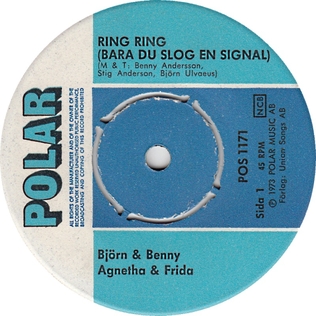
"Ring Ring" is a song by Swedish group ABBA, released as the title track of their 1973 debut album. The single gave the group their big break in several European countries (although the rest of Europe, North America and Australia would be introduced to ABBA the following year). The song was written in Swedish by Benny Andersson and Björn Ulvaeus, along with their manager Stig Anderson, with an original title of "Ring Ring (Bara du slog en signal)" ("Ring Ring (If Only You Called)"). Translation into English lyrics was helped by Neil Sedaka and his collaborator Phil Cody. The Swedish version reached No. 1 in the Swedish charts.

Tio år med Agnetha is a 1979 compilation album by Swedish pop singer Agnetha Fältskog, one of the members of ABBA. The album, released when ABBA's international career was at its peak, features the most successful Swedish solo recordings Fältskog made before and during her career with the band and it was her last album on the CBS-Cupol label.
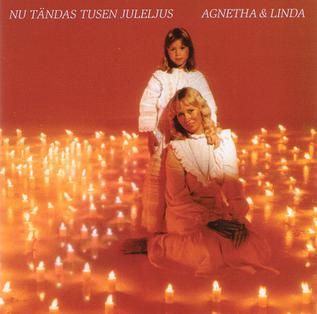
Nu tändas tusen juleljus is a Christmas album in Swedish, recorded in 1980 by Swedish pop singer and ABBA member Agnetha Fältskog and her daughter Linda Ulvaeus, who was at the time 7 years old.

Undringar is the debut studio album from Swedish singer/songwriter Ted Gärdestad, released in 1972 on the Polar Music label. It contains his breakthrough single "Jag vill ha en egen måne" as well as "Hela världen runt", "När du kommer" and "Snurra du min värld". The album was produced by Benny Andersson and Björn Ulvaeus, engineered by Michael B. Tretow and features uncredited vocals by Agnetha Fältskog and Anni-Frid Lyngstad. In 1991 the album was released on CD.

Thank You for the Music is a box set by the Swedish pop group ABBA, released on 31 October 1994. It consists of 66 tracks across four discs, with the first three discs including all of the band's singles from 1972–1982, many B-sides, and some album tracks in chronological order; while the fourth disc includes some rarities and some previously unreleased material, most notably the 23-and-a-half minute long medley "ABBA Undeleted", which includes the track "Just a Notion", later released as part of Voyage in 2021. This box set marks the appearance of several ABBA tracks on compact disc for the first time.
Bo Michael Tretow is a Swedish record producer and audio engineer, musician and composer, best known for his work with the Swedish pop group ABBA (1970–1982), and with the musical Chess. Tretow experimented with different recording techniques, and played an essential part in creating the "ABBA sound". He has also composed several themes and jingles for Swedish national radio and television.
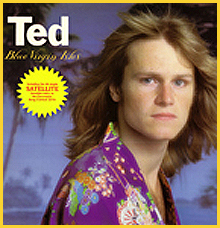
Blue Virgin Isles is the fifth studio album and international debut album by Swedish singer-songwriter Ted Gärdestad, released on November 1978 by Epic Records in the UK and Polar Music in Scandinavia.
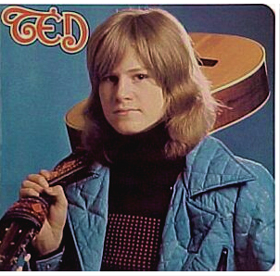
Ted is the second studio album from Swedish singer/songwriter Ted Gärdestad, released in 1973 through Polar Music. It contains the hits "Jag Ska Fånga En Ängel", "Sol, Vind Och Vatten", "Come Give Me Love" as well as his 1973 Melodifestivalen entry "Oh Vilken Härlig Da'". The album was produced by Benny Andersson, Björn Ulvaeus and Ted, engineered by Michael B. Tretow and features backing vocals by Agnetha Fältskog and Anni-Frid Lyngstad. The CD version of the album was released in 1991.

Upptåg is the third studio album from Swedish singer/songwriter Ted Gärdestad, released in 1974 on the Polar Music label. It contains the hits "Fantomen", "Silver", "Eiffeltornet" and "Viking". The album was produced by Benny Andersson, Björn Ulvaeus and Ted, engineered by Michael B. Tretow and features vocals by Agnetha Fältskog and Anni-Frid Lyngstad.
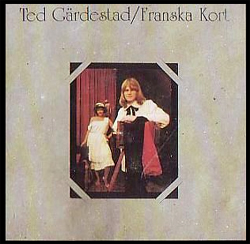
Franska Kort is the fourth studio album from Swedish singer/songwriter Ted Gärdestad, released in 1976 through Polar Music. It contains the hits "Angela", "Chapeau-Claque", "När Showen Är Slut" and "Klöversnoa". The album was produced by Benny Andersson, Björn Ulvaeus, Michael B. Tretow and Gärdestad, while featuring vocals by Anni-Frid Lyngstad. It was re-released in 2009.

Stormvarning is the sixth studio album from Swedish singer/songwriter Ted Gärdestad, released on the Polar Music label in Sweden in early 1981. Stormvarning was an expanded and partly re-recorded version of the international album I'd Rather Write a Symphony, released in West Germany and the Netherlands in 1980.
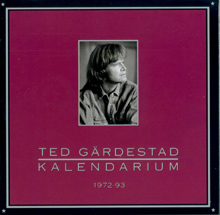
Kalendarium 1972–93 is a compilation album from Swedish singer/songwriter Ted Gärdestad, released in 1993. It includes the best-known songs from his career as well one new recording, "För Kärlekens Skull", his first in twelve years. Kalendarium also included a Swedish language re-recording of the title track from his 1978 album Blue Virgin Isles, "Himlen Är Oskyldigt Blå".

"Satellit", known in English as "Satellite", is a soft rock song written by Swedish composer and singer Ted Gärdestad and lyricist Kenneth Gärdestad. Originally performed by Ted, the song was performed in its native language as the Swedish entry in the Eurovision Song Contest 1979, finishing in 17th place.
"Jag vill ha en egen måne" is a song written by Swedish lyricist Kenneth Gärdestad and singer-songwriter Ted Gärdestad. Ted Gärdestad recorded the song, and released it as a single in April 1972. The song became his breakthrough, charting at Svensktoppen, where it stayed for 14 weeks between 11 June and 10 September 1972, topping the charts. All ABBA members appeared in the studio during the recording; Anni-Frid Lyngstad and Agneta Fältskog appear as background singers.


















